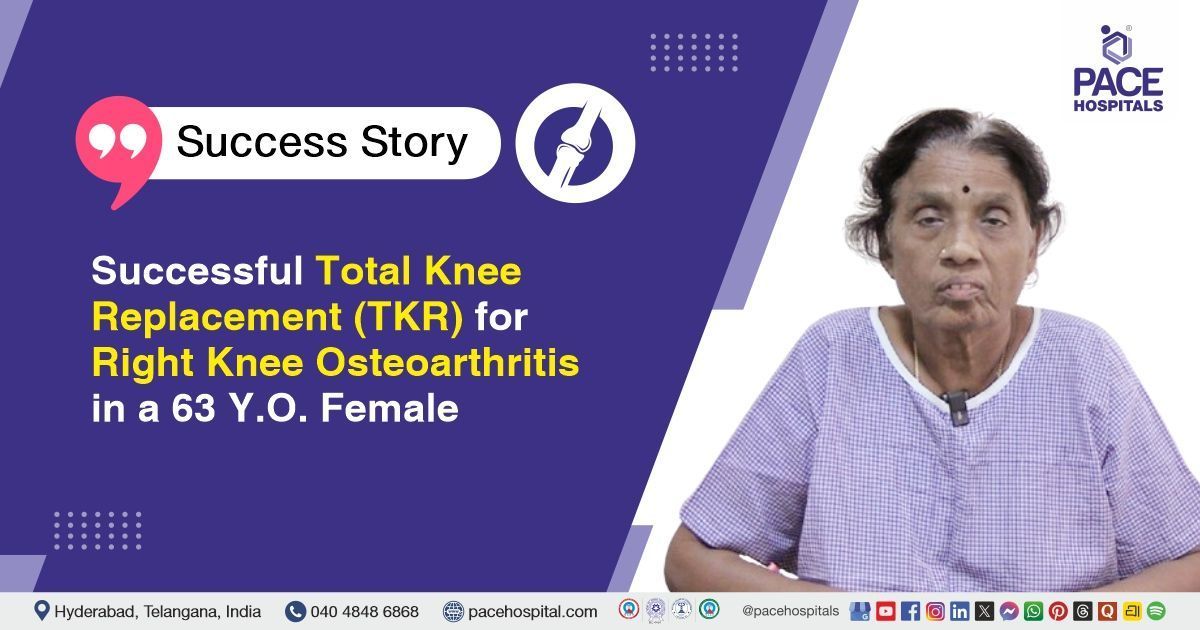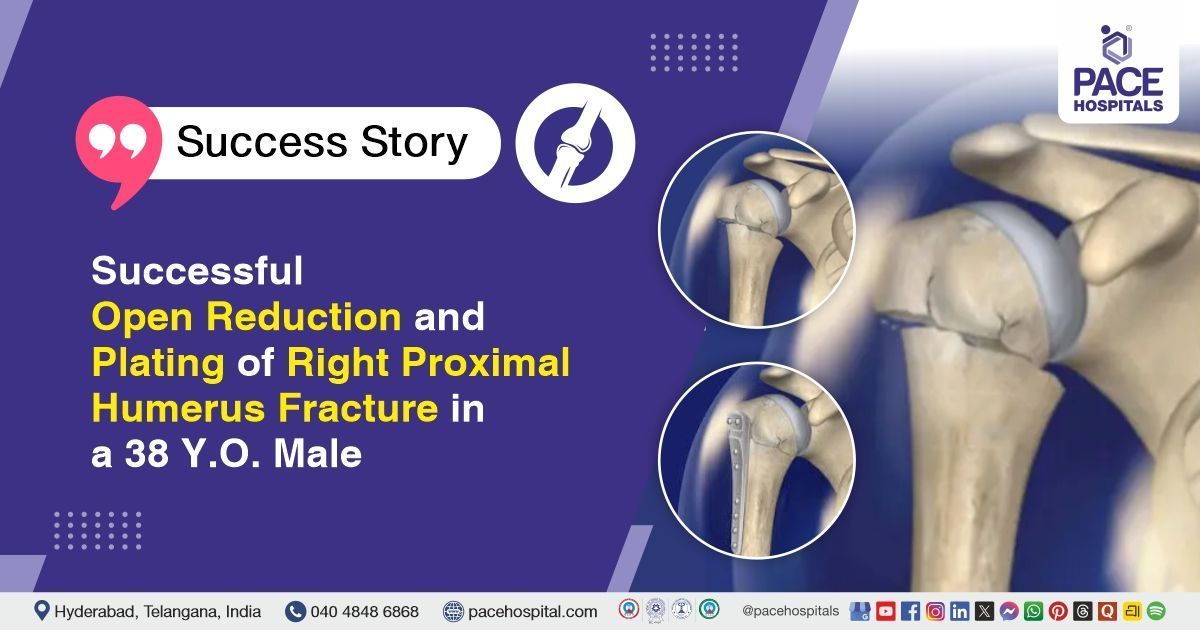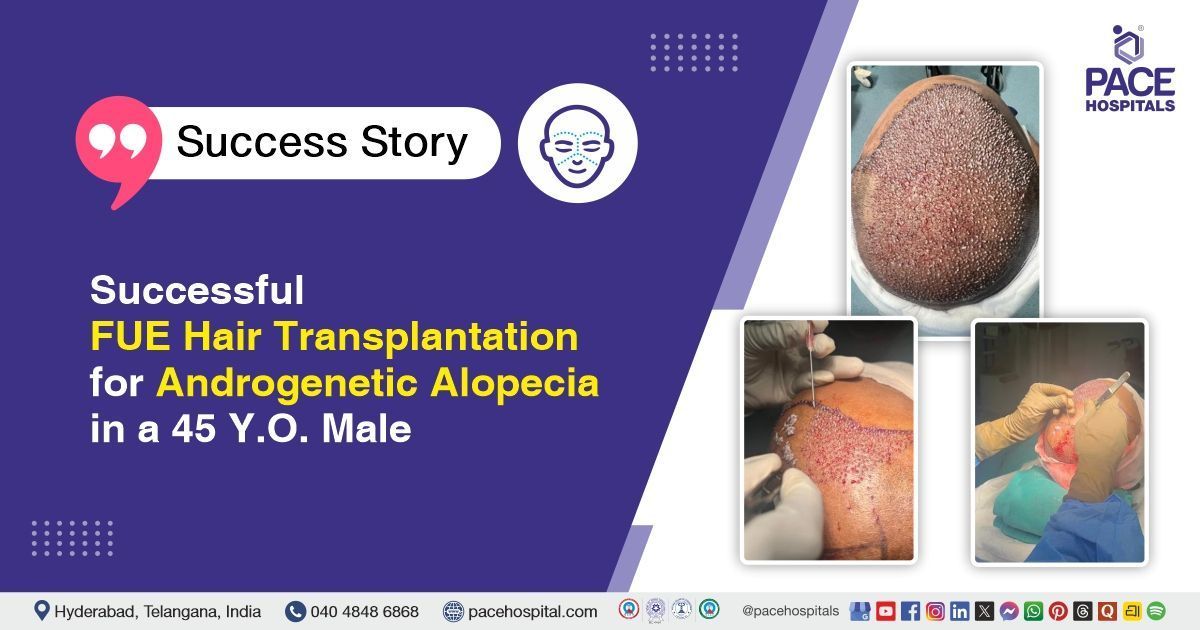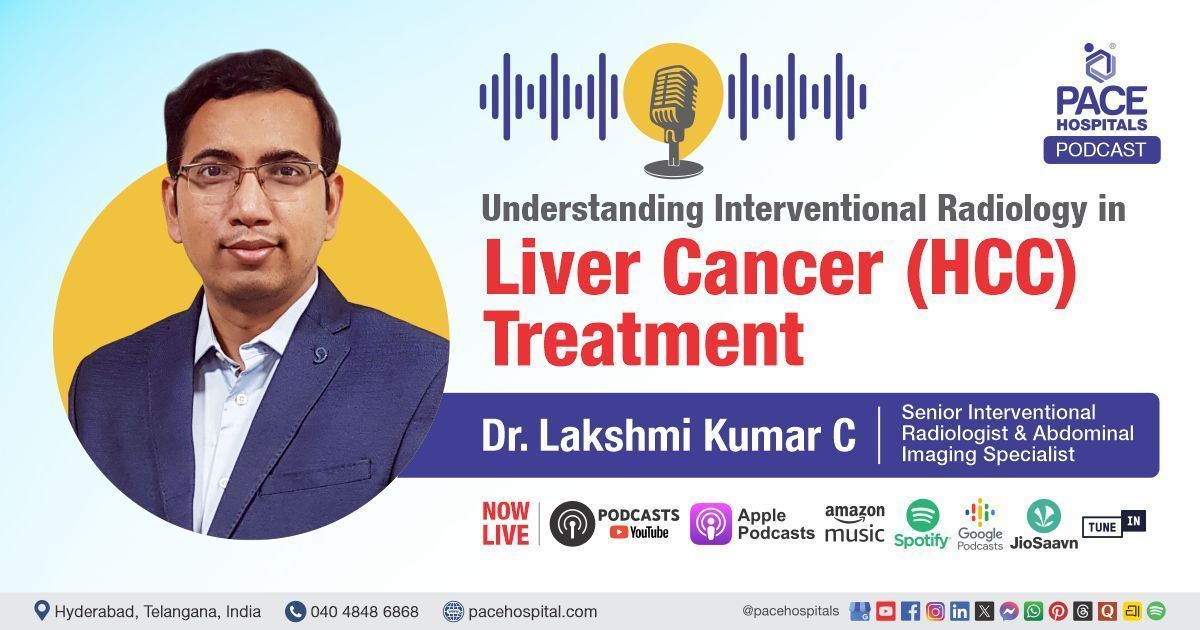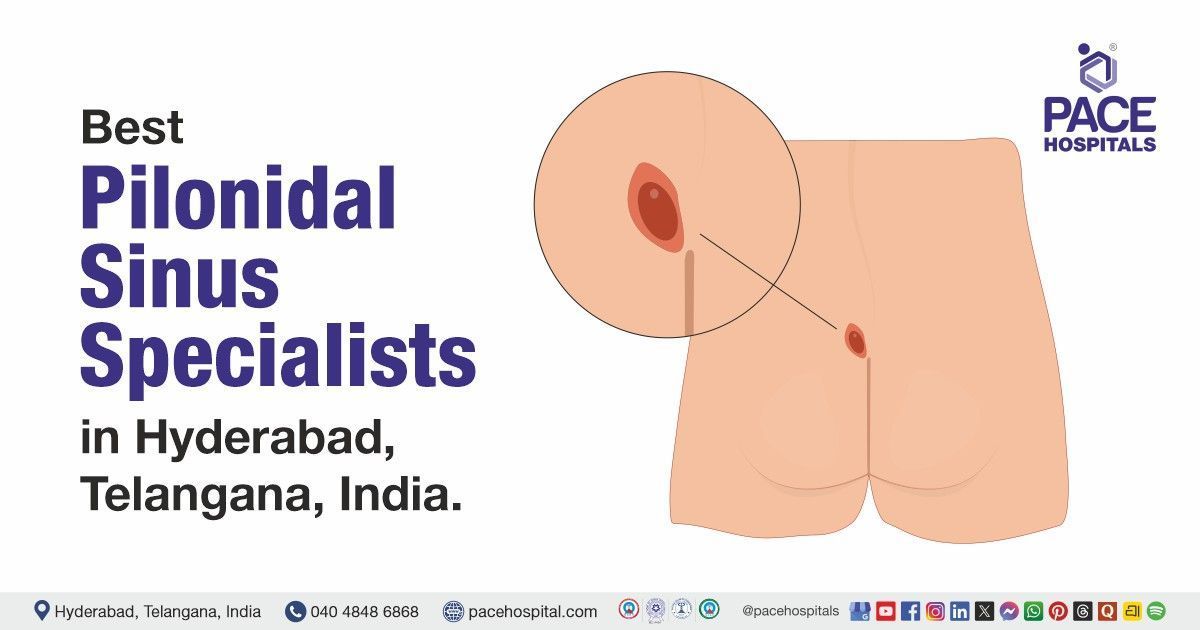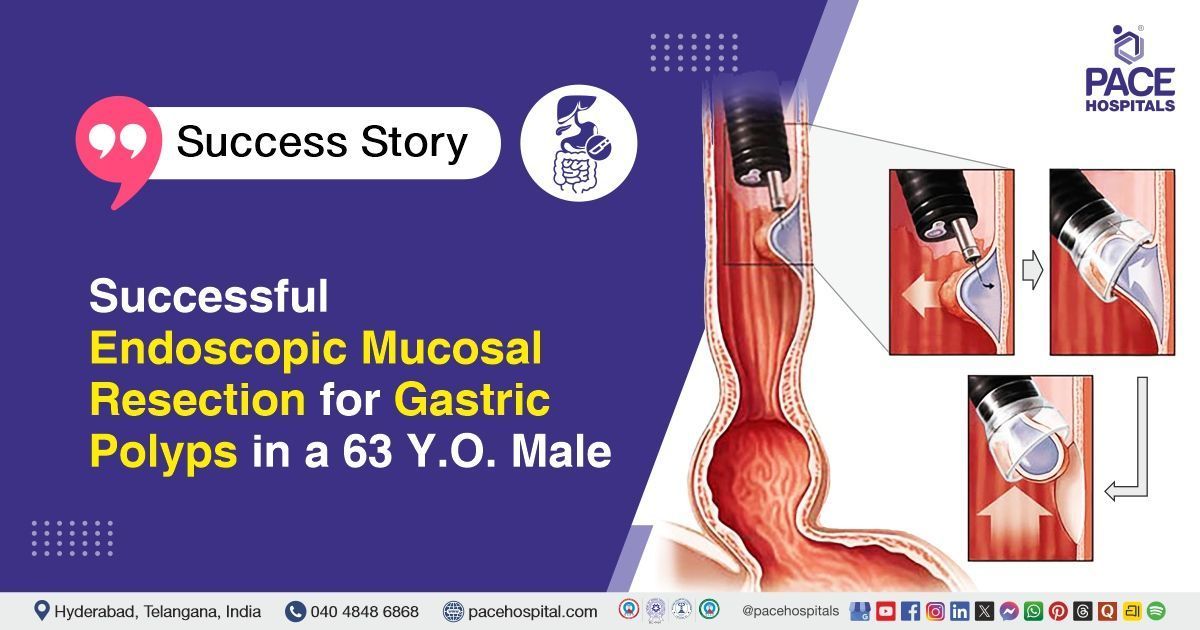Kidney Cancer Can Be a Surprise – Know the Hidden Signs
PACE Hospitals
Written by: Editorial Team
Medically reviewed by: Dr. Abhik Debnath - Consultant Urologist, Andrologist & Kidney Transplant Surgeon
Overview
Kidney cancer, also known as renal cell carcinoma (RCC), often develops silently without any obvious warning signs. Many patients are diagnosed incidentally during a health check-up or imaging scan for another condition. That’s why experts say kidney cancer can be a surprise, it hides in plain sight.
At PACE Hospitals, Hyderabad, our urologists and oncologists stress that early detection is the most effective defense against kidney cancer. With advancements in imaging, as well as laparoscopic and robotic surgical techniques, many cases of kidney cancer are now highly treatable, particularly when diagnosed early.
This article explores the causes, symptoms, diagnosis, and treatment of kidney cancer and why being aware of the subtle signs could save your life.
What Is Kidney Cancer?
The kidneys are two bean-shaped organs located behind the abdomen, responsible for filtering waste, balancing electrolytes, and regulating blood pressure.
Kidney cancer arises when abnormal cells in the kidney multiply uncontrollably, resulting in a malignant tumor. The most common type is renal cell carcinoma (RCC), accounting for about 90% of adult kidney cancers. Less common forms include transitional cell carcinoma, Wilms’ tumor (in children), and renal sarcoma.
Why Kidney Cancer Can Be a “Silent” Disease
Unlike other cancers, kidney cancer often produces no symptoms in the early stages. It grows quietly inside the body until it becomes large enough to cause noticeable problems. Many cases are discovered incidentally during ultrasound, CT, or MRI scans for unrelated conditions such as back pain or digestive discomfort.
That’s why routine health check-ups and abdominal imaging are crucial for early detection, particularly for people at higher risk
Kidney Cancer Causes and Risk Factors
While the exact cause of kidney cancer isn’t always known, several factors increase the risk of developing it:
- Smoking: One of the leading risk factors; toxins in cigarette smoke damage kidney cells.
- Obesity: Excess body weight and hormonal imbalance can trigger abnormal cell growth.
- High Blood Pressure: Chronic hypertension affects kidney function and cell regulation.
- Family History: Genetic mutations (such as the VHL gene) or a family history of kidney cancer increase susceptibility.
- Occupational Exposure: Prolonged contact with industrial chemicals, cadmium, or asbestos.
- Chronic Kidney Disease (CKD): Long-term dialysis or kidney failure increases cancer risk.
- Gender & Age: More common in men aged 50–70 years.
- Genetic Syndromes: Conditions like von Hippel–Lindau disease and Birt–Hogg–Dubé syndrome.
At PACE Hospitals, a detailed risk assessment helps identify patients needing periodic screening and lifestyle counseling.
Kidney Cancer Symptoms - When Kidney Cancer Shows Itself
Most patients don’t notice symptoms until later stages. However, once the tumor grows, common signs include:
- Blood in urine (Hematuria) — may appear pink, red, or cola-colored.
- Persistent back or side pain below the ribs.
- Lump or mass in the abdomen or flank.
- Unexplained weight loss or fatigue.
- Loss of appetite or fever not related to infection.
- Anemia or high blood pressure without a clear cause.
These symptoms can mimic other conditions, such as kidney stones or urinary infections, which is why timely evaluation by a urologist is crucial.
Staging of Kidney Cancer
Knowing the stage of kidney cancer helps doctors determine the most appropriate treatment.
- Stage I: Tumor is 7 cm or smaller and confined to the kidney.
- Stage II: Tumor is larger than 7 cm but still limited to the kidney.
- Stage III: Cancer has spread to nearby lymph nodes or major veins.
- Stage IV: Metastasis to lungs, bones, liver, or brain.
Detection at an early stage (Stage I or II) often makes curative surgical removal possible, whereas advanced cases may require a combination of treatments.
How Kidney Cancer Is Diagnosed at PACE Hospitals
Kidney cancer is diagnosed using a combination of clinical evaluation, imaging, and laboratory tests to establish the tumor's presence, size, and spreading.
- Medical History and Physical Examination.
- Doctors assess symptoms, lifestyle habits, family medical history, and blood pressure to identify potential risk factors.
- Urine and blood tests.
- Urine test: It detects blood or abnormal cells.
- Kidney Function Test: Measures creatinine and urea to evaluate kidney function.
- Imaging studies.
- Ultrasound: It is often the first test used to diagnose a kidney mass.
- CT Scan (Contrast-Enhanced): Measures tumor size, stage, and lymph node involvement.
- MRI is used when CT contrast cannot be given or for comprehensive staging.
- Chest X-ray & Bone Scan: Check for possible metastasis (spread of cancer).
- Biopsy (if needed)
- A small tissue sample may be collected using a fine needle for histopathological examination to confirm the diagnosis.
At PACE Hospitals, Hyderabad, all diagnostic steps from advanced imaging to histopathology are available under one roof, ensuring rapid and accurate diagnosis.
Treatment Options at PACE Hospitals
PACE Hospitals provides complete, personalized kidney cancer treatment with care from a team of urologists, oncologists, and kidney specialists.
- Surgery (Primary Treatment)
- Partial nephrectomy: It involves removing the tumor while conserving kidney tissue, which is suitable for tiny, localized cancers.
- Radical nephrectomy: It is the complete removal of the diseased kidney, adrenal gland, and adjacent lymph nodes.
- Laparoscopic or robotic nephrectomy: These are minimally invasive treatments which results in faster recovery and less scarring.
- Targeted therapy
- Sunitinib, pazopanib, and cabozantinib are drugs that inhibit the growth of cancer by blocking certain chemicals.
- Immunotherapy.
- Drugs like nivolumab and pembrolizumab assist the immune system in detecting and killing cancer cells.
- Radiation therapy.
- Used to relieve pain or when surgery is not an option.
- Chemotherapy
- Although less successful in most kidney tumors, it is utilized for certain subtypes, such as sarcomatoid variations.
Post-Treatment Care and Follow-up
Patients are regularly followed up after surgery or therapy to check kidney function and discover recurrence early.
PACE Hospitals provides
- Tailored rehabilitation regimens to help patients recover more quickly.
- Healthy Eating: To protect and strengthen your kidneys, follow a balanced diet high in fruits and vegetables, stay hydrated, and avoid excessive salt and processed foods.
- Regular Check-Ups: Regular blood tests, urine tests, and imaging scans help monitor kidney function, detect changes early, and allow timely treatment to prevent complications.
- Overall Support: Stay healthy, manage stress, and seek mental health support to improve your overall well-being.
Prevention and Lifestyle Tips
While not all kidney malignancies are avoidable, making some lifestyle modifications can significantly lower your risk:
- Quit smoking completely.
- Maintain a healthy weight and schedule regular physical activity into your daily routine.
- Maintain efficient control of high blood pressure and diabetes.
- Limit your exposure to potentially hazardous chemicals.
- Drink plenty of water and follow a well-balanced diet rich in fruits and vegetables.
- Go for annual health check-ups and kidney ultrasounds if you have risk factors.
Why Choose PACE Hospitals for Kidney Cancer Care?
- Expert Uro-Oncology Team: Skilled surgeons and oncologists with years of experience.
- Advanced Laparoscopic & Robotic Surgery Units.
- Integrated Oncology & Nephrology Care for precision treatment.
- 24×7 Critical Care & Modern ICU Support.
- Cashless Insurance & International Patient Services.
PACE Hospitals is recognized as one of the top kidney cancer treatment centres in Hyderabad, known for ethical, transparent, and patient-focused care.
Conclusion
Kidney cancer can be a real surprise, quiet at first, but dangerous if left untreated. Routine screenings and identification of mild signs can be the difference between early recovery and advanced disease.
At PACE Hospitals, Hyderabad, our goal is early detection, minimally invasive treatment, and complete recovery — helping patients return to healthy, confident lives.
If you notice any persistent back pain, blood in urine, or unexplained fatigue, don’t wait — get evaluated today.
FAQs on Kidney Cancer & Suprising Insights
What are the early signs of kidney cancer?
Blood in urine, back pain, unexplained fatigue, and weight loss are early symptoms. These should never be ignored.
Who is at higher risk for kidney cancer?
Smokers, obese individuals, people with high blood pressure, chronic (long term) kidney disease, or a family history of kidney cancer face a higher risk.
Is kidney cancer curable?
Yes. When detected early, surgery can completely remove the tumor. PACE Hospitals specializes in laparoscopic and robotic kidney cancer surgeries.
What are the treatment options for kidney cancer?
Treatment includes partial or radical nephrectomy, targeted therapy, immunotherapy, and radiation, depending on cancer stage and patient condition.
Can lifestyle changes prevent kidney cancer?
Yes. Avoid smoking, maintain a healthy weight, control blood pressure, and stay hydrated to reduce risk.
Why is kidney cancer called a “silent disease”?
Kidney cancer often grows quietly without symptoms. Many cases are detected incidentally during scans for unrelated health problems.
How is kidney cancer diagnosed at PACE Hospitals?
Doctors use advanced imaging (CT, MRI, Ultrasound), urine tests, and sometimes a biopsy. All diagnostics are available at PACE Hospitals, Hyderabad.
Is kidney cancer curable?
Most people live everyday lives with one kidney, provided they maintain healthy habits and undergo regular follow-ups.
How often should high-risk individuals get screened?
People with a family history or chronic kidney disease should undergo annual ultrasound or CT scans to detect early changes.
Why choose PACE Hospitals for kidney cancer treatment in Hyderabad?
PACE Hospitals offers advanced imaging, minimally invasive surgery, and multidisciplinary oncology care, along with personalized recovery programs.
Share on
Request an appointment
Fill in the appointment form or call us instantly to book a confirmed appointment with our super specialist at 04048486868


